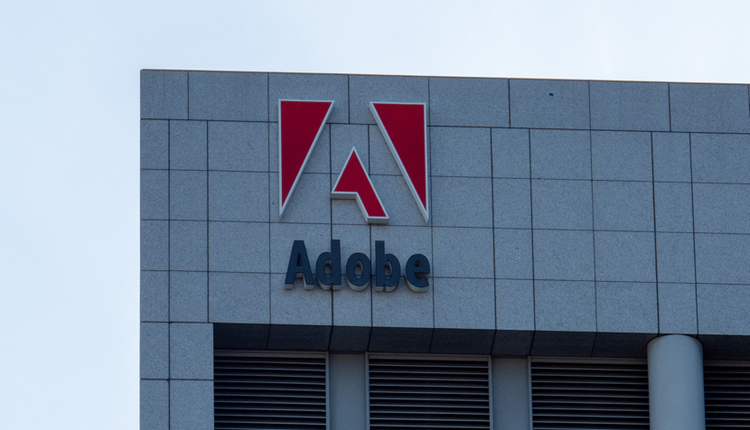
Global reputation management across borders in 2014 is where local reputation management with multiple stakeholders was in the late 1990s. For leading multinationals, it will get harder before it gets easier, as local audiences know what they want from you, and they want it their way–not your way.
Stakeholders of all shapes and sizes are more empowered than ever before. Consumers are making better-informed decisions and deciding to deal with your company–or not–based on new rules and criteria that surely didn’t originate from your internal definitions of what success used to look like around the corner.
Since the 2008-09 financial crisis, one of the first rules of the emerging reputation economy (where the companies behind the products and services take center stage for all the right and wrong reasons) is that while exporting a good reputation is hard and takes a good deal of purpose and sweat equity over time, a bad reputation takes on a life of its own and will spread like wildfire, whether you like it or not.
Stakeholders of all shapes and sizes are more empowered than ever before. Consumers are making better-informed decisions and deciding to deal with your company–or not–based on new rules and criteria that surely didn’t originate from your internal definitions of what success used to look like around the corner.
Since the 2008-09 financial crisis, one of the first rules of the emerging reputation economy (where the companies behind the products and services take center stage for all the right and wrong reasons) is that while exporting a good reputation is hard and takes a good deal of purpose and sweat equity over time, a bad reputation takes on a life of its own and will spread like wildfire, whether you like it or not.
The question for reputation managers then in this new operating environment is simple: How can we have a seat at the table to help organizations better leverage relationships with specific groups of people who matter around the globe to drive better business outcomes?
One way to accomplish this is by strengthening the ties that bind between knowledge managers (KM) and corporate storytellers, and these ties come in three flavors: people, process and technology.
MORE: "Reputation to What End?" Has a Lot to Do with Knowledge Management
People: Find ways to incentive collaboration between content creators (marketing, communications, strategy) and content curators (KM) so that you can go beyond compliance to inspire others with your corporate story. Think of it as a chapter book–corporate publishes it, but each chapter must resonate and connect with local audiences.
Process: An emerging best practice is to create a Reputation Council that sets the tone and strategy for reputation management, measurement and activation around the world. KM should absolutely have a seat at the table alongside with other support functions to inform stakeholder owners of the good, the bad and the ugly of enterprise content management.
Technology: Because mobile and social media have literally given individuals dozens of new ways to learn about, stay connected or complain about your company 24x7, it is now table stakes to have the user experience and feedback loops in mind when it comes to managing PESO (Paid, Earned, Shared, Owned) channels. When your KM organization is empowered to deploy technology to help frontline employees shrink response times while improving the quality of each stakeholder interaction–both proactive and reactive–reputation resiliency is created.
What works best is an “outside-in” approach to stakeholder engagement. Here are a few examples from the front lines–and fault lines–of the reputation economy.
Measure, move, measure–locally
Most companies still don’t have a fact base about what stakeholders expect from them outside their home market. As a result, a global reputation platform built exclusively on single-country customer, media and management expectations usually results. Even the best regarded companies in the world find the prospect of funding and fielding regular multistakeholder measurement daunting, so a proxy stakeholder (opinion elites or the general public are the two most common) is sometimes chosen instead to get a temperature check outside the home market. FedEx has numerous operating companies (Express, Ground, Freight, Office) and multiple stakeholders it keeps close tabs on in the US, but keeps it simple in the rest of the world where its Express division keeps score by measuring key opinion leader perceptions every two years across 14 markets.
Changes in attitude, changes in latitude
Aflac is a great example of a global company that operates very locally in tune with stakeholder expectations. Although Aflac’s corporate headquarters is in Columbus, GA, about 70% of the company’s revenue comes from Japan. In the US, Dan Amos was the first Fortune 500 CEO to opt in to “say on pay” in terms of corporate governance and executive compensation, while its four-decade commitment to cancer research prove that it was in the corporate citizenship business before it was “cool.” Contrast this with Aflac Japan’s response to the 2011 tsunami–it suspended TV advertising featuring its mascot duck and quickly took out newspaper ads offering messages of condolences. Japanese customers affected by the natural disaster were automatically given a six-month grace period to pay insurance premiums. The steps taken by Aflac were comparable to what many other Japanese companies did: falling in line with the national calls for self-restraint, humility and sacrifice. In its two largest markets, Aflac unmistakably operates in an authentic and credible way as a local company.
Listen to your employees around the world, not just at corporate headquarters
Virtually every multinational company runs annual employee engagement/satisfaction surveys around the world. Savvy communicators can mine that existing data to see where local employees are aligned around different values and expectations than global norms–which can serve as a “speed bump” for how external stakeholders, like community activists or politicians, will respond. Often times, this reality check can prevent a global campaign or priority from being rolled out to poor reviews in a local market. At the very least, local employee communications can explain the corporate rationale in a way that is more palatable and relevant to local customs and tastes. Imagine Fiat using the same campaign and mindset from its native Italy in its two most important global markets for expansion: Brazil and the US (on its own as well as through its stake in Chrysler). Fiat trusts its employees in Belo Horizonte, Catania and Detroit to serve as brand ambassadors and reputation critics rather than merely trust the wisdom of its corporate masters in Turin to get things right across totally different markets.
Global capabilities only lead to supportive behavior, like recommendation or benefit of the doubt in a crisis, if they are locally relevant to stakeholders. Multinational companies can do the world a favor by aligning their global ambition and vision with their local capabilities and local stakeholder expectations. And they can’t do it without KM having a seat at the table and empowering their colleagues with data, insights and templates to be able to prosthelytize as well as do damage control each and every day.
Global capabilities only lead to supportive behavior, like recommendation or benefit of the doubt in a crisis, if they are locally relevant to stakeholders. Multinational companies can do the world a favor by aligning their global ambition and vision with their local capabilities and local stakeholder expectations. And they can’t do it without KM having a seat at the table and empowering their colleagues with data, insights and templates to be able to prosthelytize as well as do damage control each and every day.
John Patterson is a NY-based senior advisor at Reputation Institute where he has been responsible for thought leadership and global account strategies for the consulting firm since 2010. Follow Reputation Institute on Twitter @Reputation_Inst.

















